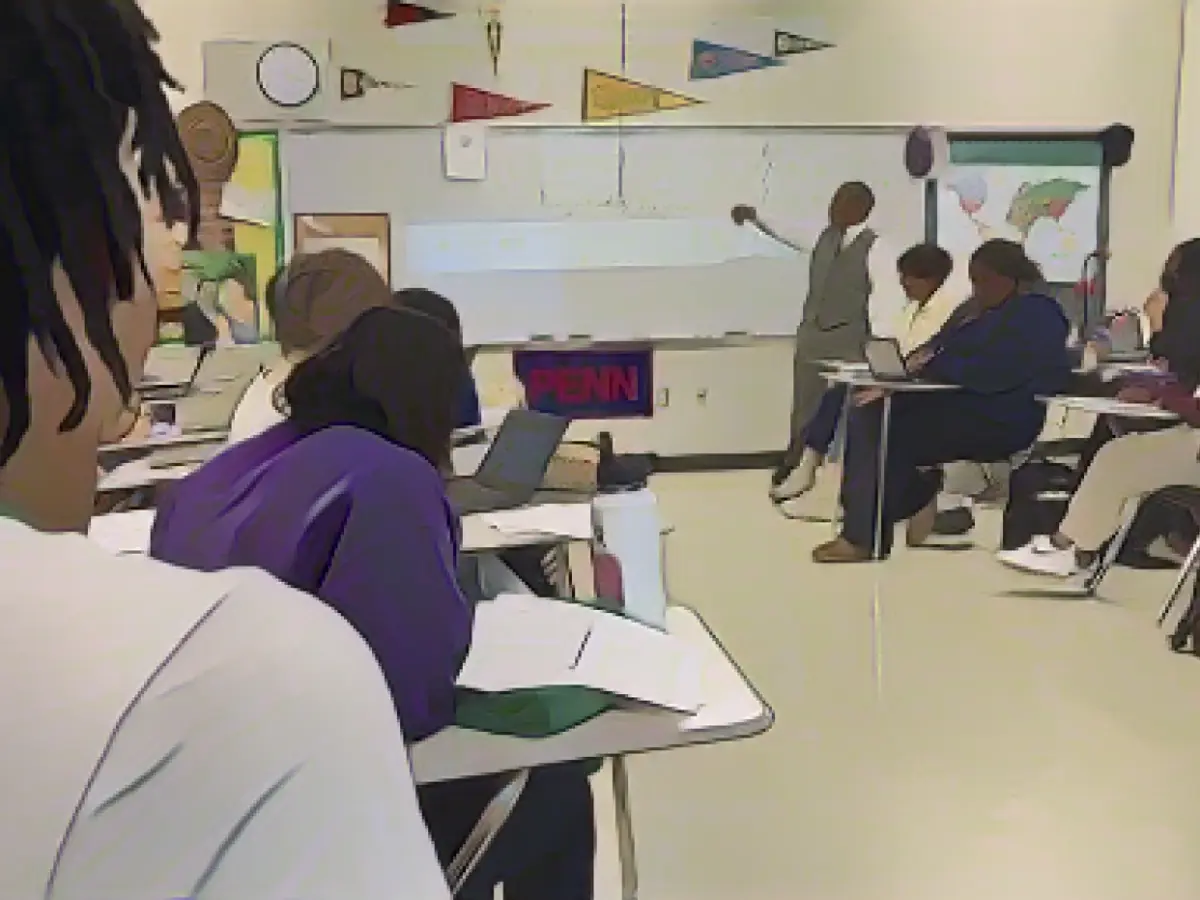College Board Unveils New African American Studies AP Course Materials Amid Controversy
The College Board, the organization responsible for administering AP exams and SAT college entrance tests, is currently seeking "skilled experts, academics, and experienced AP teachers" to revamp the African American Studies AP curriculum in the face of intense competition. This news comes in the wake of intense debate over the inclusion of a politically charged agenda in the original course framework.
Florida Governor Ron DeSantis and other critics accused the original curriculum of forcing a "political agenda" onto the course, leading to its initial rejection by the Florida Department of Education. The department denied the pilot version due to concerns about its lack of pedagogical value and alleged violation of state laws prohibiting the teaching of critical race theory (CRT).
The revised course materials, announced in April and scheduled for release on Wednesday, incorporate additional resources on the Tulsa Race Massacre, the contributions of African Americans during World War II (including the Tuskegee Airmen), and the influence of African Americans on music, film, and sports.
The new curriculum covers a diverse range of topics, from early African kingdoms and the transatlantic slave trade to the Civil War, reconstruction, and the civil rights movement. It is divided into four main sections: "The Origins of African Diaspora," "Freedom, Slavery, and Resistance," "The Practice of Freedom," and "Movements and Debates."
The revised framework aims to refocus content on correspondent college courses, ensuring a balanced introduction to the discipline's essential topics. By saving time for teachers and students to delve deeper into topics of interest, the curriculum aims to inspire future college success.
Disregarded topics, such as Black Lives Matter and reparations, will be mentioned as potential discussion topics in the concluding week of the course, albeit not as part of the AP examination. These subjects were initially included in earlier versions of the course framework but were subsequently removed due to objections from Florida's education authorities, which deemed them inappropriate.
Speaking about the revised curriculum, the College Board stated, "This course provides an engaging introduction to a vibrant discipline and offers a broader perspective. It encourages students to develop analytical skills while exploring the rich tapestry of African American experiences, contributions, and creativity, as well as the impact of these elements on the world we live in."
Brandi Waters, Senior Director and Program Manager for African American Studies in Advanced Placement at the College Board and the primary author of the revised framework, added, "I would have loved to take this course in high school. I hope that every interested student has the opportunity to participate."
Currently, approximately 13,000 students are registered for the pilot program, which will be offered at around 700 schools in over 40 states and the District of Columbia. The pilot program will initially be available at 60 schools during the 2022-2023 academic year.
"AP African American Studies has proven its ability to attract many students to their first college-level courses – by focusing on engaging content, we can help guide many college beginners on the path to academic success," David Coleman, CEO of the College Board, stated in a press release.
Controversy Surrounding the New African American Studies AP Curriculum
The revised African American Studies AP course material has drawn widespread criticism due to its inclusion in high school curricula and the subsequent restrictions imposed by various states. Here are the key points related to the controversy:
- Mutual Benefits:
- The course aims to provide a comprehensive education on African American history and culture, benefiting all students, regardless of race.
- It encourages white teachers to learn and teach about Black history, fostering a more inclusive learning environment.
- Restrictions and Bans:
- Several states, including Florida, have imposed restrictions or outright bans on the teaching of the AP African American Studies course due to concerns about CRT and DEI.
- These restrictions are often driven by the perception of CRT and DEI as divisive, politically charged concepts.
- Teaching Challenges:
- Teachers face significant challenges in adapting their lessons to address state and school district guidelines, which can limit the depth and accuracy of the course material.
- Textbooks sometimes fail to adequately address the extent and impact of racism, making it difficult for teachers to provide a holistic education.
- Public Perception and Criticism:
- The course has been criticized for allegedly promoting CRT and DEI, with some seeing it as justified due to its controversial nature.
- Critics argue that the course material is overly focused on negative aspects of American history and lacks a balanced perspective.
- Educational Response and Community Engagement:
- To counter restrictions, educators and content creators have turned to social media platforms like TikTok to share their teaching materials and promote Black history education.
- Initiatives like the "HillmanTok University" movement and the "Fast Black History" series aim to keep Black history alive and accessible to a wider audience.
In summary, the revised African American Studies AP course material has faced criticism due to its inclusion in high school curricula, the perceived alignment with CRT and DEI, and the restrictions imposed by some states. Despite these challenges, educators and content creators are working to promote the importance of teaching Black history and its integral role in American history.








